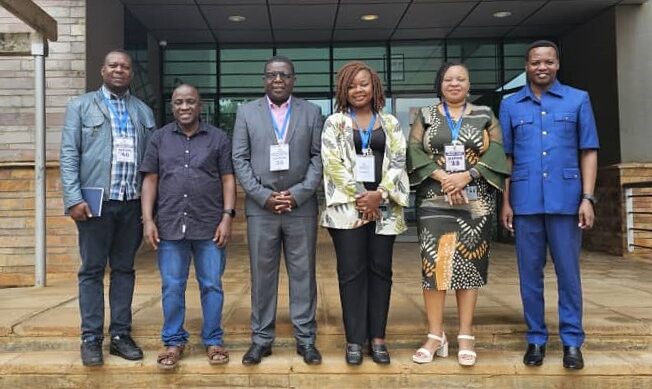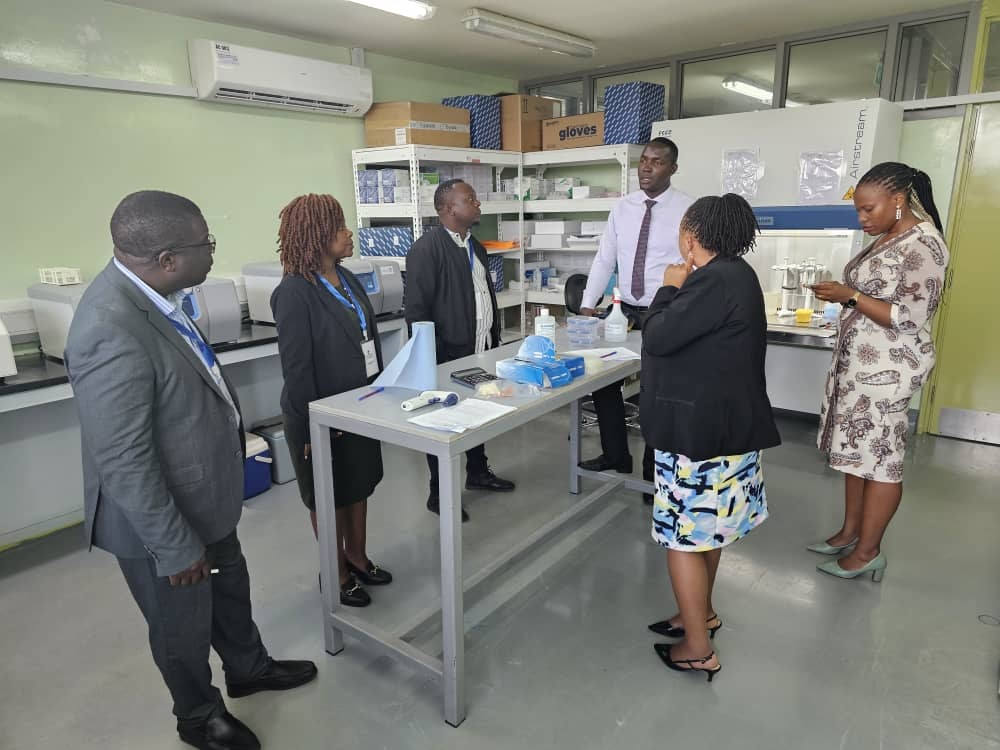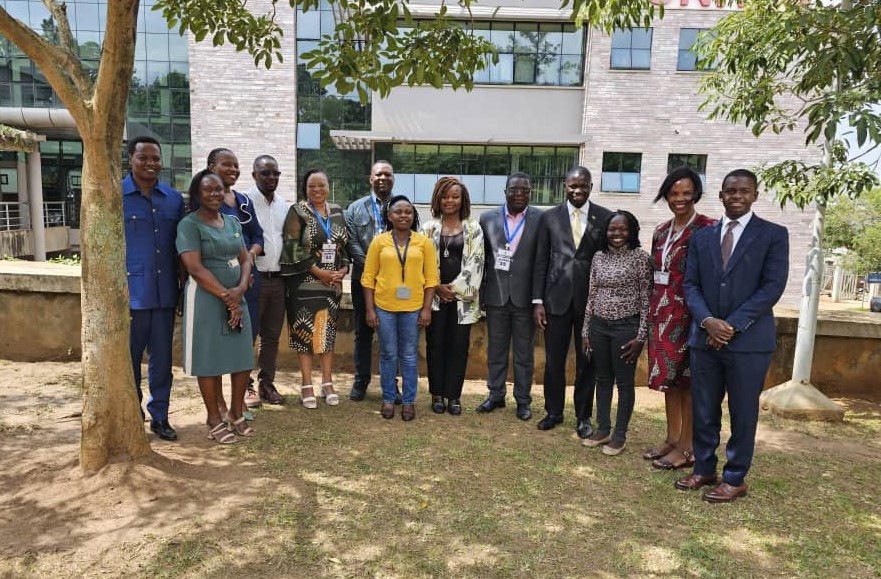Uganda South-to-South Learning Visit: 19-24 June 2023

In June 2023, the Zimbabwe LabCoP team visited the Uganda National Health Laboratory Services (UNHLS) to learn about the operations of a reference laboratory and see how different units are best coordinated in light of expansions in scope. The visit also aimed at prioritizing interventions to address gaps identified during the integration readiness assessment and the viral load cascade self-assessment conducted in late 2022. Some of the identified gaps included inadequate proficiency testing (PT) provision to laboratories. The team also looked into ways of expanding the sample transport system to cover all diseases and respond to outbreaks. The Zimbabwe LabCoP team was accompanied by representatives from the Zimbabwe National Microbiology Reference Laboratory (NMRL), the Directorate of Laboratory Services (DLS), and ASLM’s Francis Ocen, the LabCoP Project Officer. Zimbabwe’s NMRL and DLS were specifically seeking guidance on both stronger coordination of well-established, already-accredited quality management system (QMS) standards, as well as expansions to include a calibration unit and introduction of proficiency testing schemes.
Uganda made some general recommendations, including re-naming Zimbabwe’s NMRL to reflect its expanded scope and revising the organization of the DLS to coordinate all sectors through the reference laboratories in order to strengthen the Directorate and enhance integration. The Uganda team also provided advice on integration of the National Integrated Sample and Results Transportation system and the laboratory information system at the Uganda National Reference Laboratory.
In addition, a number of specific recommendations were made in reference to ISO standards relevant to the goals of the Zimbabwe team. These included ISO 15189 for medical laboratories, ISO 17025 for testing and calibration, ISO 17043 for proficiency testing, and ISO 20387 for biobanking.
Based on their experience with their ISO-17025-accredited Equipment Calibration Laboratory, the Uganda team recommended that the Zimbabwe NMRL first establish a calibration unit covering speed, mass, temperature and volume. Importantly, they also recommended that all processes should align to the ISO17025 standard from inception, so that the unit is accredited in the shortest possible time. Finally, they recommended that the Zimbabwe NMRL initially employ only medical laboratory scientists in the unit to conduct calibration services, while repairs and maintenance should be outsourced.
With regard to the ISO-17043 standard for proficiency testing, Uganda recommended that Zimbabwe expanding their current provision of PT panels for HIV, HIV viral load and early infant diagnosis to cover the whole country as it is currently covering conventional sites and a few POC sites. In addition, Uganda recommended that the NMRL should expand its scope to cover hepatitis, serum Crag and human papillomavirus and conduct EQA performance review meetings after each PT cycle. To support these goals, Uganda will provide Zimbabwe with standard operating procedures for panel production.

The Zimbabwe team learned and appreciated many concepts during the visit, which will be implemented at the NMRL in a phased approach. Implementation of the various interventions will go a long way in ensuring sustainability in equipment calibration as well as PT provision within our facilities. They also acknowledged the support from ASLM’s LabCoP and look forward to presenting an implementation plan to be monitored over time.

